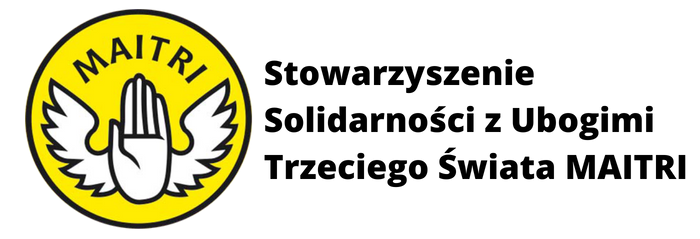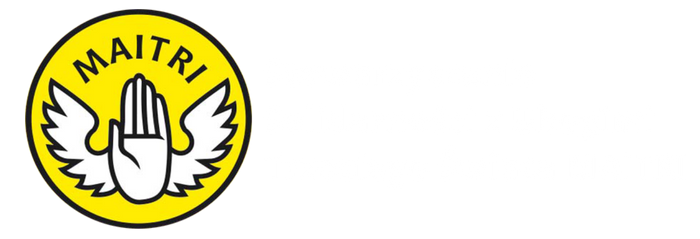Countries
Burundi
The Maitri Movement supports the children and their communities in Burundi in cooperation with two congregations: The Sisters of the Holy Spirit and The Carmelite Sisters of The Baby Jesus. We run the following Have a Heart Adoption programmes: Primary, Secondary School and School of Life Skills. The missionary centres provide the aid to the children living in Kamenge district of Bujumbura and rural areas of Gatara and Buraniro. The School of Life Skills is located in Buraniro where the girls learn how to sew the clothes and boys learn carpentry skills. In addition to the Have a Heart Adoption, we also run nourishing projects and provide the medical assistance to those in need.

Cameroon
Have a Heart Adoption in Cameroon
The Maitri Movement runs Have a Heart Adoption scheme in Cameroon through more than 25 Polish mission centres. We cooperate with the following congregations: the Sisters of the Most Holy Soul of Christ the Lord (Abong-Mbang, Djouth), the Passionist Sisters (Bertoua-Enia, Ndelele, Bertoua-Tigaza; Yaounde), the Pallottines Sisters (Doume, Bafoussam), the Dominican Sisters (Garoua Boulay) and the Sisters of the Immaculate Conception of the Blessed Virgin Mary (Mandama). The Bishops of two dioceses of Doume-Abong Mbang and Yokaduma are also Polish.
Cameroon – Africa in miniature
European explorers reached Cameroon in the 15th century. In 1884 the country became a German colony what triggered an economic growth and infrastructure development. To this day, Germany is very well perceived by the Cameroonians. After the I World War, in 1916, Cameroon became the League of Nations mandates territory and was divided between France and the United Kingdom. In 1946 the League of Nations mandates were converted into the United Nations Trusteeships.
In 1961, British part of the Cameroon united with the French part, forming the Federal Republic. In 1982, Paul Biya became a president of a newly formed country with a total land area of 475,442 km2.
Cameroon has a very humid equatorial climate. Annual rainfall is usually around 61 inches. The agriculture is the backbone of the country economy. People farm here cocoa, coffee, rubber trees, cotton, groundnuts, sorghum, millet, rice, yams, corn, beans, sugar cane, tobacco and much more. There is also an animal farming and livestock is raised throughout the whole country, like sheep, goats, cattle, donkeys and poultry. Many Cameroonians are fishermen. They fish primarily in Chad, Lagdo, Bamendjin, Mbakaou lakes and Nkami, Wouri, Chari, Logone rivers.
Cameroon is often described as “Africa in miniature” as it contains all major continent vegetation e.g. coast, mountains, deserts. In the north of the country you can find savannas and in the south, rainforest – the major source of the ebony and mahogany.
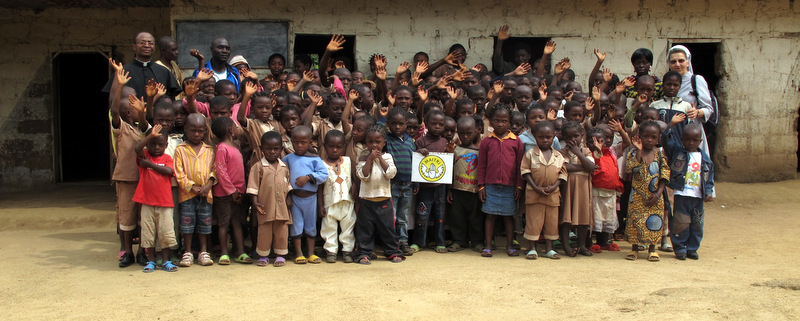
Rwanda
Have a Heart Adoption in Rwanda
The Rwandan Civil War (1994/95) and so the genocide of innocent people caused a huge humanitarian crisis. The war left thousands of children without parents, often a few years old. The Maitri Movement initiated Have a Heart Adoption scheme in Rwanda in 1995/96 in cooperation with the Pallottines Order and the Pallottines Sisters. More than 3000 children participated in our programme over the period of 17 years. We also carried out, and still do, “the nutrition programmes” since 2013. The following Congregations help us to fight the malnutrition in Rwanda: The Pallottines Sisters (Kigali-Gikondo, Masaka, Ruhango, Ruhuha), The Pallottines Order (Kabuga), the Sisters of the Holy Angels (Nyakinama) and the Sisters of the Franciscan Servants of the Cross (Kibeho).
Education challenges in Rwanda
More than 60% of the Rwandan society was illiterate before the war. Approximately 60% of children were attending schools at the age of 9. By the time they reached 15, only 1 in 7 children would receive an education. The notebooks and pencils were the items of luxury, not to mention textbooks. Many children didn’t attend the schools because their parents couldn’t afford the school uniforms. Less than 50% of Rwandan children were able to finish the primary school with no chance to continue it further. Only tiny percentage of pupils enrolled in the secondary schools. These were the rich families’ children, able to cover high costs of an education.
The situation of the youth is very difficult. Unable to receive an education and without the support from the foster parents, they are on their own. The older children usually have to provide for their younger siblings. They tend to escape from the smaller villages to Kigali, the capital of the country. The girls, sadly turn to prostitution. Many women return to their homes at a later stage, often HIV positive or pregnant. The boys tend to get involved in robberies and end up in prisons. In some cases, the children die on the streets.
The children in Rwanda want to attend the schools. They understand that an education can help them to realise the dreams of a better life. The secondary school qualifications can significantly change the child’s situation. It is much easier to find a job, especially when there are so many illiterate people in the country. The children become independent and increase their social status. Educated girls have also a greater chance to get married.

DR Congo
Have a Heart Adoption in Nord Kivu region
Nord Kivu province is in the eastern part of DR Congo. Its capital is Goma. The Maitri Movement carries out Have a Heart Adoption scheme in DR Congo since 1999. We work with the Pallottines Sisters, the Pallottines Order and the Sisters of the Holy Angels. The Pallottines Sisters run nutrition programmes in Goma and Rutshuru. There is also School of Life Skills available in Rutshuru, where young boys learn the carpentry skills. In the small village Ntamugenga (150 km north of Goma) the Sisters of the Holy Angels run a small hospital for the local community as well as the nutrition programme.
The conflict in the Democratic Republic of Congo
The children participating in our programmes come primarily from the eastern part of Congo, on the border with Rwanda. As mentioned before, we work in Nord Kivu province. The region major cities are Goma and Bukavu, where more than 12.5 million people live. A lot of fighting took place in the area especially in 1996, the Second Congo War (1998–2003) and the Kivu conflict (2004–present). It is estimated that more than 5.4 million people have been killed since 1998. On many occasions, we spoke with the families living in endangered areas. We also grieved over the loss of several of our children. When you decide to sponsor a child in this region, please remember their life is in constant danger.
Since 1994 there are few government institutions in Kivu province. There are also active Civil Society Organisations advancing citizens interests. Along with the Catholic, Baptist and Pentecostal Churches, they provide a range of social services to people including health and education. In 1974/75 president Mobutu banned the religion from schools. Their nationalisation caused an education crisis. In 1977, Mobutu had to reintroduce religion in schools and bring back the teachers.
In 2003, Nyiragongo volcano erupted, destroying 40% of Goma. The lava covered many hospitals and schools causing some fatalities.
Many conflicts in Nord Kivu arise from ethnic differences. Nanda tribes are the native people of Goma and form the majority there. Bukavu is populated mainly by Bashi. There are more than 40 different languages spoken in the region. In the 19th century, Tutsi, speaking Kinyarwanda, began migrating to Goma. They are called Banyaruanda here. It was Goma, where Tutsi created rebellion centre during the war. In Rutshuru, Tutsi people are 24% of the whole population. In Bukavu, they are called Banyamulenge. They form a minority here and the region is more peaceful. All the population data is estimated since the last census was in 1984. The situation in Goma is still unstable and worse than Bukavu. If you decide to sponsor a child in Goma, your help means much more than in other areas.
The challenges of education
The article 43 of the Congolese Constitution states that a primary school is compulsory and free. The article was to come into effect in September 2005. The teachers’ strikes over low pay made it difficult to introduce. Parents need to cover all the education costs. They contribute towards the teachers’ salaries ( approximately 50%), cover various school operating expenses, including administration, inspections, and exams. According to the data, in 2004, a household spent between 27 and 39 USD annually on primary education. This sum doesn’t include the costs of textbooks and notebooks, exam fees and more. In fact, many children don’t have any textbooks.
In the beginning of 1960, there were only 20 university graduates in the whole country. These statistics show how important our programmes are in DR Congo. Every child who successfully finishes the secondary school or graduates from the university is a huge success to us.
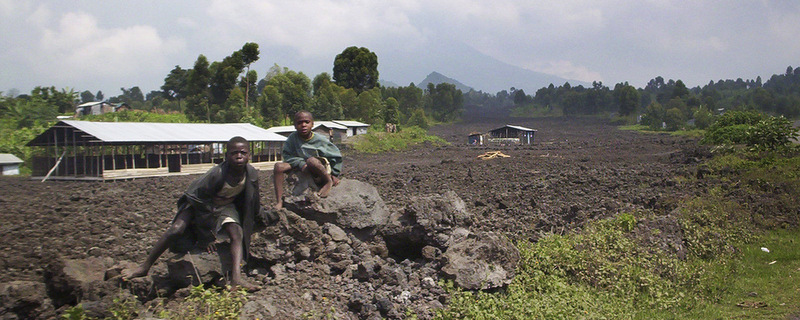
Congo - Brazzaville
The Maitri Movement runs the Have a Heart Adoption programme in Congo-Brazzaville (Brazzaville city and Oyo) since 2011, in cooperation with the Sisters of St. Joseph.
Madagascar
Have Heart Adoption in Madagascar
The Maitri Movement runs Have a Heart Adoption scheme in Madagascar in cooperation with the Jesuits order, in Fianarantsoa and Amparibe.
Difficult living conditions in Madagascar
Madagascar is one of the least developed countries in the world. Only one in four people have access to clean drinking water. The Polish Jesuits, successors of Blessed Jan Beyzym, are committed to developing an education for Madagascan children.
Blessed Jan Beyzym treated people affected by leprosy as equal to anybody else. He was inspired by one of the sick, Michal, about whom he said: “I have been priest and monk for such a long time and still so far away from achieving the level of Michal’s devotion”. His missionary zeal was often misunderstood by others. Sometimes he was too impulsive. Once someone told Jan, that people with leprosy should be eliminated, he said: “I try to love my neighbours as myself, do not judge nor hate anyone, but I openly say to my Father, that I can’t stand the one who gives me such advice”. In the beginning, even the Madagascan people didn’t believe that Jan can deal with leprosy. They kept saying: “Look, look, he touches them but is not afraid!”. Jan didn’t accustom right away to leprosy. He wrote: “You have to get used to the stench, here you can’t smell flowers, but fetor of the rotten flesh…”. Despite all this, Jan didn’t give in and over time he got used to it. He said: “Of course, sometimes, it’s difficult while cleaning the wounds, but I’d rather have them on myself than to see the suffering of all these people”. Jan was fighting for the proper hospital to treat leprosy, yet, he didn’t receive an approval from the mission supervisor. He always had a great trust in Our Lady. He believed that the Virgin Mary would lead everything as it should be.
Sudan and South Sudan
Have a Heart Adoption in Sudan
The Maitri Movement runs Have a Heart Adoption scheme in Sudan since 1998. The Salesian Sisters carry out the programme, on our behalf, in Hilla Mayo, south of Khartoum.
South Sudan – peace or war?
The North and South Sudan signed the peace agreement, ending the Second Sudanese Civil War, in 2005 in Naivasha (Kenya). South Sudan gained its independence in 2011, yet, people still don’t feel safe. The independence didn’t end the internal conflicts. The 2013-2015 civil war displaced 2.2 million people and caused large migration within the country. The peace is still very fragile and Sudanese leave in constant fear and danger. Most affected areas are in South Sudan’s Upper Nile region, Jonglei and Unity, the province of South Kordofan. After the 2005 peace agreement, the vast majority of South Sudanese went home. According to the International Organization for Migration, more than 1.2 million people returned to South Sudan, between 2007 and 2009. Yet, there are still many refugees living outside of their home country.
The refugees don’t usually come back to their old homes as they don’t exist anymore. They tend to move to more urban areas. It is particularly visible in Juba which becomes more and more multicultural due to different tribes settling there. This new establishment causes a lot of tension between the people speaking different languages.
Togo
The Maitri Movement runs Have a Heart Adoption programme in Togo since 2010 in cooperation with the Congregation of the Devout Virgins of St Catherine, Virgin and Martyr. There are two schemes available: Primary School and Secondary School programmes in Biankouri-Dapong, Sokode, Pagouda and Guerin Kouka.
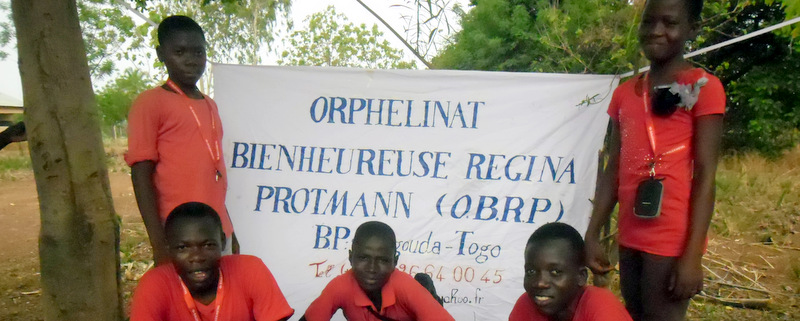
Central African Republic
The Maitri Movement supports the school in Ndim through the Order of Friars Minor Capuchin, however, we don’t run Have a Heart Adoption programme here.
India
The Maitri Movement runs Have a Heart Adoption scheme in Karunalaya Center in Puri. The project was started by Fr. Marian Żelazek who opened Beatrix School. It was intended for the children of leprosy patients in 1983 as they could not get admission in other schools. Nowadays we are honoured to carry on his idea.
Nepal
Maitri Movement cooperates with Karunika Tuition Center in Kathmandu. The greatest impact of bringing help possesses the program of Heart Adoption, which lets taking special care for a chosen child. We take care of several dozen of children and deliver educational, material and health care in a daily time. We also support children with their correct development, fulfilling the role of a second home.
Syria
Maitri Movement cannot stay unconcerned with tragic situation in Aleppo. Have a Heart Adoption scheme support disabled people from Syria. We cooperate with Saint Francis parish. Supporters enable them to provides daily meals, proper education and special mobility allowance.
